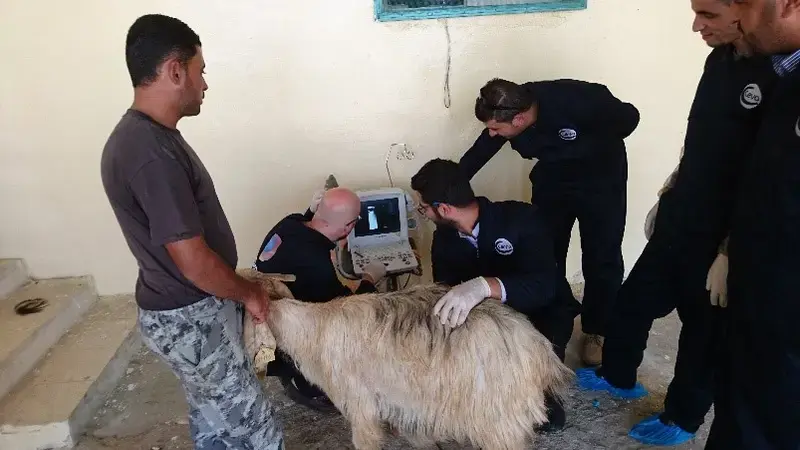Public-private initiative enhances reproductive performance of small ruminants

ICARDA has initiated a public-private initiative with a global leader in animal health and reproduction. The collaboration will develop solutions to enhance the reproductive efficiency of sheep and goats in the Middle East and reverse the low productivity experienced by the region’s livestock farmers. CEVA Santé Animale is one of the fastest growing top 10 animal healthcare companies worldwide.
The agreement signed with ICARDA focuses specifically on capacity strengthening: ICARDA scientists will provide training modules and technical back-stopping to private sector veterinarians. The trainings will focus on reproductive fitness, ability and performance – core considerations that lie at the heart of the production processes.
Small ruminant breeds in the dry areas have rarely been selected for enhanced reproductive efficiency, and constraints continue to undermine productivity: infertility and other infertility-related factors such as delayed puberty, extended postpartum anestrus, and postnatal mortality. Reproductive performance is also sensitive to herd health issues such as zoonotic abortive diseases.
Strategic training
The trainings under the joint ICARDA – CEVA Santé Animale agreement adopt an integrated approach based on a clear understanding of reproductive patterns and the specific features of dryland sheep and goats. Treatment involves the staged introduction of simple, cost effective aspects of an integrated package encompassing reproduction, health, feeding, and genetics - with the ultimate goal of increasing profitability.
The first training of the ICARDA - CEVA Santé Animale agreement was recently held in Amman and attended by 15 veterinarians from five countries in the Middle East: United Arab Emirates, Jordan, Palestine, Egypt and Lebanon. All participants were working in the private sector and experienced in treating sheep and goats.
The training combined theory – including exteroceptive factors and reproduction, the genetic foundations of reproduction, reproduction and nutrition interactions, and major health constraints; knowledge-sharing; and practical applications such as assessing the male reproductive tract, synchronization, ultrasound-based pregnancy diagnosis and an overview of reproductive technologies to serve breeding programs.
The training was also sponsored by Instruments de Médecine Vétérinaire and hosted by the National Centre for Agricultural Research and Extension (NCARE Jordan). Future events will include an on-the-job training of field veterinarians in the United Arab Emirates, and a training in Jeddah for Saudi Arabian veterinarians.
